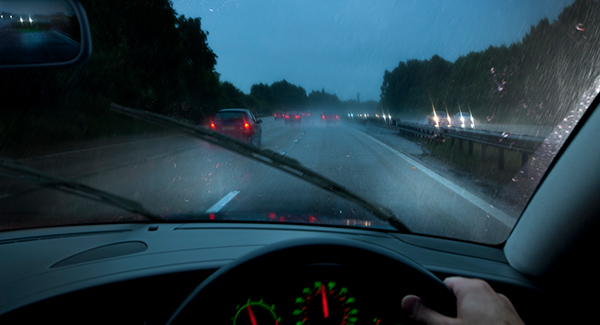- Editorial Team
A telematics or black box policy can help young drivers get affordable car insurance. A condition of a telematics policy is that policyholders fit a device, commonly known as a black box, in their vehicle. This device captures data on how, where and when they drive their vehicle. This data is then used to calculate an overall driving score. Typically, the higher the score, the safer the driver. Insurers use this data to provide a more accurate picture of the policyholder’s driving habits.
The driving score is calculated based on several factors, including speed, braking, cornering, distance travelled and the time of day the vehicle is driven. Most insurers recognise that nighttime driving is necessary for various activities, such as work or socialising. Whilst most insurers do not enforce nighttime curfews, regularly driving at night will negatively affect the overall driving score.

Why is driving at night more of a risk?
Many accidents occur late at night. Vision is reduced in the dark, and assessing speed, distance, and hazards is challenging. Reduced visibility in the dark can make it difficult to assess speed, distance, and hazards. Identifying other road users, especially those wearing dark clothing, can be a challenge. Tiredness can slow down your reactions, and there’s a risk of falling asleep behind the wheel.
Since the roads are typically quieter at night, some drivers may feel over-confident and more inclined to take unnecessary risks, such as speeding. Young drivers are at risk because of their inexperience.
The time of day you drive is one factor influencing your driving score and insurance premiums. Driving at night can negatively impact your overall driving score with some insurers due to the increased risks and dangers.
If you frequently drive late at night, for instance, if you work unsociable hours, an insurance policy without a black box may be more suitable.
What is considered late-night driving with a black box?
Each insurer will have its criteria and timeframe for assessing nighttime driving. For example, at A Choice, we consider late-night driving between 11 pm and 5 am.
Driving at night is statistically more dangerous, so avoid it where possible. If you need to drive at night, plan your journey and ensure you are well-rested. Also, take breaks and drink a strong coffee to remain alert and focused.
What are the penalties for nighttime driving with a black box?
Persistent nighttime driving may result in higher motor insurance premiums or policy cancellation in more severe cases. If your black box policy has a curfew, you must not drive during the specified times.
What are the benefits of driving with a black box?
There are various benefits to driving with a black box, including:
- A telematics policy can help you get more affordable car insurance if you’re a young driver or have previous convictions.
- A black box can offer crash detection and assistance if you are involved in an accident.
- A black box can help improve driving by providing real-time data on the policyholders’ driving habits.
- A telematics policy encourages safer driving. Black boxes typically offer regular feedback on your driving and tips on improving.
- A black box can deter theft by discouraging criminals and can help locate a stolen vehicle through GPS tracking.
- A black box could help resolve a motor insurance claim.
- Your driving data is safe and secure.
Are there any other restrictions on a black box?
A condition of a black box or telematics policy is that the device must remain installed and active for the entire policy duration. Removing or interfering with the device may result in your policy getting cancelled or the insurer refusing to pay out on any claims you make.
You may also need to contact your insurer if you anticipate exceeding your estimated annual mileage, as this is one of many factors that influence the cost of your premiums.
Final thoughts
Remember, a black box can help keep you safe on the roads and reward you with lower premiums at renewal if you have a good driving score. However, If you frequently drive at night, a black box policy may not be suitable.
Learn more
Share this article
Table of Contents
More posts

Understanding Road Crossings, Puffin, Pelican & Zebra | A Choice

A Guide On How To Tax A Car | A Choice

How To Give Your Vehicle A Spring Clean
